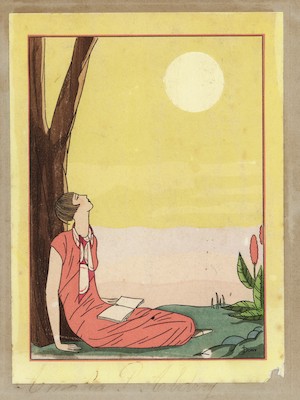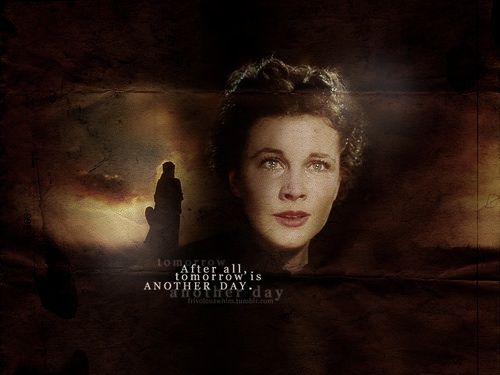
Illustration by Britt Spencer
Sometimes we know what a novel’s last line will be from the beginning, we just don’t know that we knew. It’s a trick readers of Less – a recent comic novel of lost love and world travel by Andrew Sean Greer – will recall: Less’s last line is “Less!” Right Ho, Jeeves would end on the line, “Right ho, Jeeves,” if Jeeves didn’t then reply, “Very good, sir.” Trollope’s Can You Forgive Her? occupies its last lines with that titular concern—hoping that, all told, we can. And in the last line of Rabbit, Run Rabbit Angstrom (you guessed it) runs: “out of a kind of sweet panic growing lighter and quicker and quieter, he runs. Ah: runs. Runs.”
Last lines of novels may leave you with no idea of what’s next — or they may simply act as though there’s no end in sight. Some even seem to say something new with every rereading.
But some of the best-remembered last lines are unpredictable and inconclusive. The famous ones have a way of leaving things unresolved. Which makes sense: Whatever they actually say, last lines carry the memory of everything that came before. Having to account for every meandering middle thing, last lines ring less singularly certain than openers. They may leave you with no idea of what’s next—or they may simply act as though there’s no end in sight. Some even seem to say something new with every rereading.
The one last line that everyone seems to know – The Great Gatsby’s “So we beat on, boats against the current, borne back ceaselessly into the past” – is a grim one to have collectively committed to memory, being not just hopeless but Hadean. And, like some of the crueler endings life offers, it sneaks up on us: The first-person plural – for some reason, “we” are the Sisyphean sailors – swoops in without warning, interrupting what was an otherwise stylistically consistent gasping ode to Gatsby. Everyone remembers it, I first assumed, precisely because it’s so unsettling.
But then, nautical last lines do have a peculiar power all their own, what with the existential grandeur of the deep. The last pages of Joshua Slocum’s memoir Sailing Alone Around the World offer sweetly profound parting words: “To young men contemplating a voyage I would say go.” And, finally, “The days passed happily with me wherever my ship sailed.” The last line of Victory, the Joseph Conrad novel – when a sea captain, returned from his final visit to hero Axel Heyst’s island home, finds no trace of the drama that burned there: “Nothing!” – delivers the absolute finality of a return to the watery void, as only a captain’s report can.
Jane Austen’s loveliest last line is the seafaring send-off to Persuasion, her last complete novel – which painstakingly pairs a baronet’s shy daughter, Anne Elliot, with a love she let sail away without her once before, Captain Wentworth: “She gloried in being a sailor’s wife, but she must pay the tax of quick alarm for belonging to that profession which is, if possible, more distinguished in its domestic virtues than its national importance.” A happy future awaits Austen’s heroines more often than not. But only Anne and Wentworth are adventurers, baronetcy be damned.
With some last lines, the story’s over – but that’s all: The rest of life continues as it ever was. When Jake Barnes answers Brett Ashley, “Isn’t it pretty to think so?” at the end of The Sun Also Rises – it’s “pretty,” that is, to think “we could have had such a damned good time together” – there’s an empty carrying on, a perpetual posture of necessary indifference in which Jake is forever frozen.
The last lines of Wuthering Heights and Vladimir Nabokov’s Bend Sinister both feature moths, the nocturnal lepidoptera instinctively associated with the gathering darkness. Emily Brontë’s is a restful farewell: “I lingered round them, under that benign sky; watched the moths fluttering among the heath and hare-bells; listened to the soft wind breathing through the grass; and wondered how any one could ever imagine unquiet slumbers for the sleepers in that quiet earth.” Whereas Nabokov bursts in on his dystopian denouement with a scene of himself and an ill-fated moth on his window screen. “A good night for mothing,” Nabokov, an expert collector, concludes.
I’m now convinced that to be truly terminal, last lines must land, maybe moth-like, on death. The Leopard is fittingly funereal in the end, describing a dog’s corpse, “Then all found peace in a little heap of livid dust.” But the novel is one long last line, tending to the lost light of the princely Sicily that Giuseppe Tomasi di Lampedusa’s grandfather knew.

Woman sitting under a tree reading a book wearing a coral pink dress with neck scarf. Lithograph with pochoir (stencil) handcolour from the luxury French fashion magazine Art Gout Beaute 1926. Illustration signed Dory. (Photo by Florilegius/SSPL/Getty Images)
Saul Bellow’s Seize the Day ends at an actual funeral, a stranger’s, where Tommy Wilhelm finally breaks through his unremitting misery while the church music swells and mourners wonder who he is. “He heard it and sank deeper than sorrow, through torn sobs and cries toward the consummation of his heart’s ultimate need.”
They Came Like Swallows, a semiautobiographical novel by the great William Maxwell, also ends at a funeral – and yet it finds a way not to end. “And with wonder clinging to him (for it had been a revelation: neither he nor anyone else had known that his life was going to be like this) he moved away from the coffin.” The parenthetical opens on the boy’s future: a life defined by his mother’s sudden death.
Now that I have novels open to the last page covering every available surface in my house, I know my preference. The best last lines don’t let anything end. Death did come for the archbishop, but My Ántonia lingers. It leaves us wondering what it is that friends impress upon each other’s lives. The last line: “Whatever we had missed, we possessed together the precious, the incommunicable past.”
The Portrait of a Lady, for all its comely twists, answers . . . nothing. Isabel eludes Caspar Goodwood – again – having started for Rome already: “She [Isabel’s friend Henrietta] walked him [Goodwood] away with her, however, as if she had given him now the key to patience.” Whether Isabel chooses him or her independence in the end—an end that will never come – tends to depend on my mood. Either way, I know he’ll be waiting.
Anyway, all of this is to say that the best last lines aren’t endings at all. And, really, would anyone want them to be?

The Final Line: Gone With the Wind
Written by Alice B. Lloyd, Staff Writer for The Washington Examiner ~ December 14, 2018
